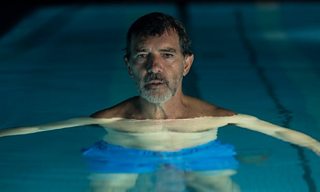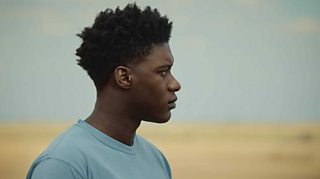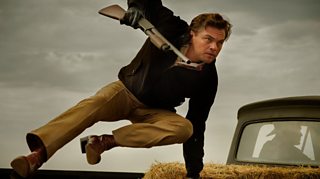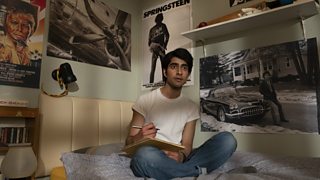Pain and Glory
From Proust onwards, many artists in all media have, at some point, looked back at their earlier selves and, without actually producing a factual autobiography, have tried to explore what triggered their creative forces. Fellini’s Otto e Mezzo (1963) is almost a cinematic benchmark for this musing. Almodovar’s 21st film both acknowledges this reflection as a kind of sub-genre and, more importantly, draws together in one narrative, themes, scenes, actors and elements which are either embedded inside or foregrounded in his earlier work.

50 years ago, young Salvador and his mother Jacinta (Penelope Cruz) move from Madrid to a poverty stricken rural village to live in a subterranean house, essentially a cave.
Film director Salvador Mallo (Antonio Banderas) has creative block. We first see him submerged underwater undergoing the same therapy that Almodovar has had for his bad back. Salvador explains to us (through a detailed animated sequence) all the physical and psychological conditions that have left him unable to work. Like all of the film, even that descriptive sequence is colourful, witty and almost self-effacing.
There are three time-lines that flit back and forth through the film. 50 years ago, young Salvador and his mother Jacinta (Penelope Cruz) move from Madrid to a poverty stricken rural village to live in a subterranean house, essentially a cave. A young mason does the place up and in return Salvador teaches him to write. Later we see that Salvador’s awakening as gay is sparked by seeing Eduardo wash himself. Again, water, as a theme.

Grown-up and successful Salvador re-connects with an actor whom he has avoided for 32 years because the actor, Alberto, didn’t perform the way that he, as writer/director wanted. Alberto introduces Salvador to heroin. Here, the drug is a catalyst for opening up more of Salvador’s memories. Almost by chance he briefly meets a former lover from the 1980s. Federico (Leonardo Sbaraglia) looks like Banderas. Grey hair and beard, clothes still looking a bit Eighties – many of the clothes that Banderas wears as Salvador are actually those of Almodovar himself! Salvador and Federico converse and more memories are opened up, especially as Federico is only in Spain for a short time and happened to see a short monologue, Addiction, written by Salvador and given to Alberto.

The trademark bold colours are there, there is wit and reflection, there are numerous references to films, and, as Almodovar has recently said, there is a restraint to it, wanting to βavoid the shadows of rhetoricβ.
Confusing? Not in the slightest. Each element slips into place both for Salvador and for us. All the more so when he remembers his aged mother (now wonderfully played by Julieta Serrano) railing against him for putting her and the villagers in his work. “I don’t like this autofiction !”. That’s you told off, Salvador/Pedro
Gradually, Salvador comes to grips with his health, helped by his female assistant Mercedes. His relationship with her is never satisfactorily explained. Which is a shame, as all the other female roles, major and minor, are beautifully delineated. It ends with Salvador making a new film, First Desire, which is autoficcion, with Penelope Cruz as his mother Jacinta…
The trademark bold colours are there, there is wit and reflection, there are numerous references to films, and, as Almodovar has recently said, there is a restraint to it, wanting to “avoid the shadows of rhetoric”. It is mature, accessible to all and is up there with Volver and All About My Mother.
About this Blog

The Arts Show’s resident film buff, Mike Catto is a seasoned film critic, educator, and historian. One day the film of Mike Catto’s life will be made, but we haven’t found the actor to play him yet.
Film

Booksmart - 24 hours left to party!
Beanie Feldstein and Kaitlyn Dever star in what has been dubbed the female 'Superbad'.







